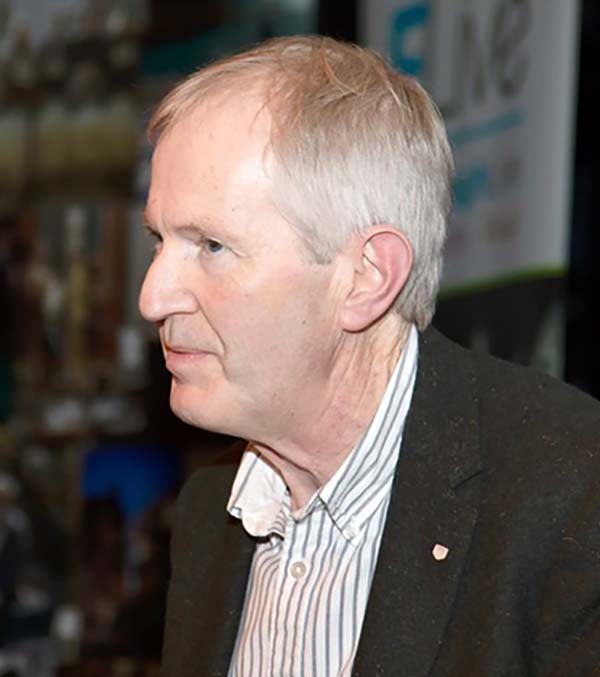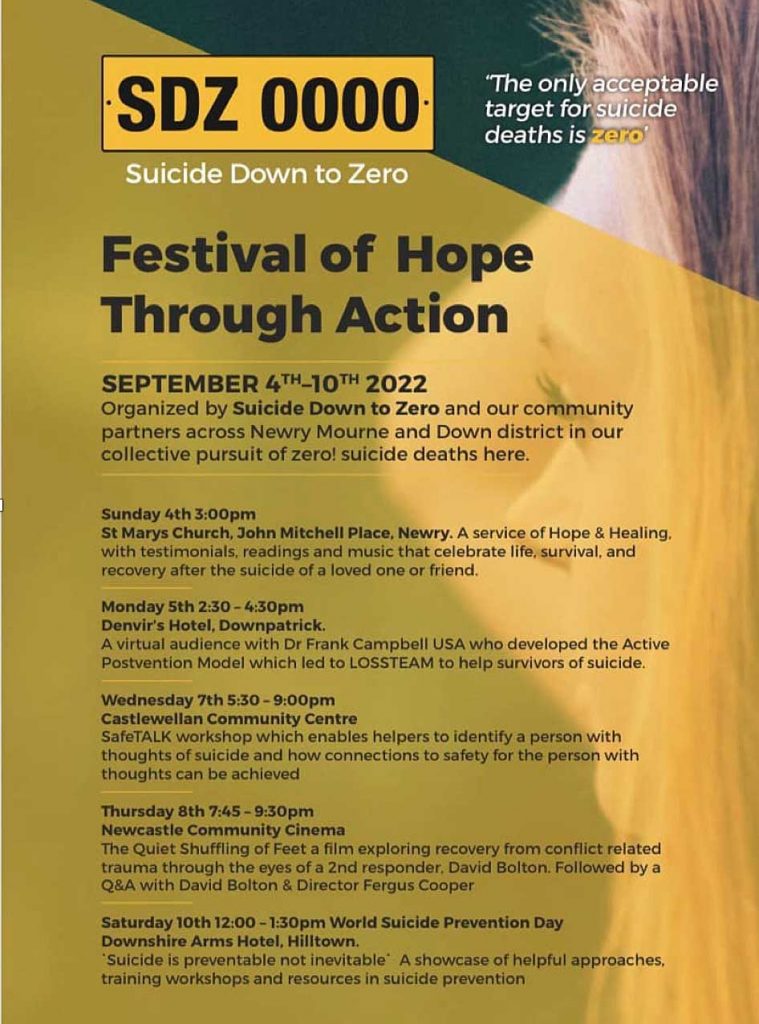Newcastle Community Cinema To Show Film On Conflict Related Trauma
The Quiet Shuffling of Feet, a documentary about conflict related trauma, recovery and peace-making, will be shown in Newcastle Community Cinema on Thursday 8th September at 7.45pm.
The screening is one of several events being organised by local charity Suicide Down to Zero in the run up to World Suicide Prevention Day Saturday 10th of September. The charity screening is being sponsored by Castlewellan Inter-Churches Forum.
The documentary profiles the work of David Bolton, who led the post-trauma recovery to the Enniskillen and Omagh Bombings. At the time of the Omagh bombing 15th August 1998 David was the Director of Community Care in the Sperrin Lakeland Trust.

In the immediate aftermath of the bombing in Omagh and in the following years he worked with relatives of the 29 killed and many of the injured survivors.
David went on to establish the Northern Ireland Centre for Trauma and Transformation which he led until his retirement.
David and his team have worked internationally with other victims and survivors including those from the Kegworth air disaster, the 9-11 disaster in New York and the Nepal earthquake.
The film is the work of producer-director Fergus Cooper who lives in south Down. Fergus said: “It took over two years to make from first conversations with David through to filming and editing, and the premier in October 2019 as part of the Fermanagh Live Arts Festival.
“At the time it was critically well received in the press. We held several screenings thereafter for survivors, faith groups and schools before all screenings stopped due to Covid.
“I’m delighted to be able to show the film for the first time in my own district thanks to Castlewellan Inter-Churches Forum and Suicide Down to Zero.”
The film is 55 minutes in length and will be followed by a Q & A with David Bolton and Fergus Cooper.
As well as leading recovery services in Enniskillen and Omagh David also carried out ground-breaking research in partnership with the University of Ulster Jordanstown that established that Northern Ireland has amongst the highest rates of PTSD in community much of wish goes undiagnosed.

Untreated trauma can lead to significant psychological and mental health issues and to self-harm and even suicide. David is also the author of the academic book: Conflict, Peace and Mental Health published by Manchester University Press.
Speaking about the film David said: “I was initially reluctant to make this film as it seemed that the time had passed to talk publicly about the events I and colleagues had witnessed.
“At the time the film was made however, our politics was broken, and it seemed as though the human costs of our conflict was being forgotten – along with the memory of how much it had taken to bring it to an end.
“It seemed necessary to speak again of the hurt, loss and trauma that many have endured, of the unmet needs, and of the consequences for our children and grandchildren.”
Newcastle cinema has a capacity for 150 people and tickets are now available online from: newcastlecinema.org Doors will open from 7.15pm and film will start at 7.45pm.
***

***
David Bolton, former social worker and leader in post-trauma recovery responses, is the author of: Conflict, Peace and Mental Health – addressing the consequences of conflict and trauma in Northern Ireland (Manchester University Press).
Whilst Director of the Northern Ireland Centre for Trauma and Transformation and in partnership with the Ulster University, several research studies was published demonstrating that Northern Ireland has one of the highest levels of conflict-related mental health levels of former conflict zones (see 4. below for more information).
Fergus Cooper is a documentary filmmaker and media trainer:
He previously led a number of children’s charities in Northern Ireland including Headliners, Save the Children, and the Speedwell Trust. He recently graduated from the Northern Ireland Film and Television School, SERC, Bangor. Link to official trailer: https://vimeo.com/349980660
Research undertaken by a team from the Northern Ireland Centre for Trauma and Transformation and Ulster University has shown that the Troubles have been a major source of stress on the population.
Two in ten adults (39%) have had at least one traumatic experience relating to the Troubles and the findings show that this exposure significantly increases the risk for a range of mental illnesses.
This has contributed to Northern Ireland having a high rate of Post-Traumatic Stress Disorder (PTSD) compared to other areas of conflict and having one of the highest suicide rates in the UK.
The rate of suicide in the most deprived areas (many of which have seen the worst of the violence) is three times that of the least deprived areas. In spite of these findings Northern Ireland spends only 6% of its health budget on mental health compared to 12% in England & Wales.
























